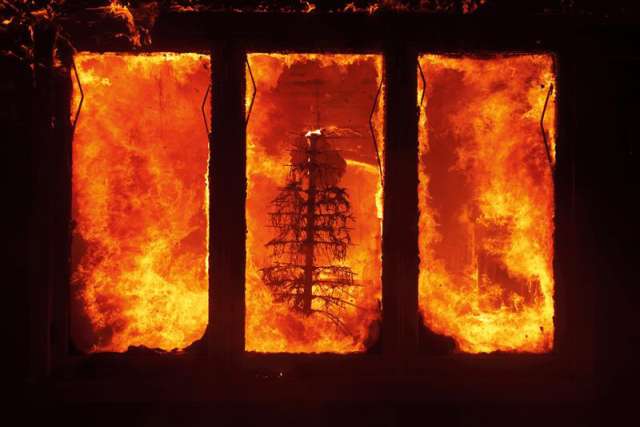In the face of the terrifying fires that erupted in January and lay waste to broad swaths of the region, residents throughout Los Angeles County went on high alert. People died, homes and businesses — entire communities — were destroyed, wildlife was ravaged and the lives of tens of thousands of families were upended.
For those who lost family, friends or loved ones, or whose property was damaged or destroyed, the road to recovery will be a long one. Months after the last embers have cooled, images of the ruin may continue to trigger feelings of anxiety and dread.
The psychological toll, even for those who were not directly affected by the fires, will linger, says Melissa Brymer, PhD, director of terrorism and disaster programs at the UCLA-Duke National Center for Child Traumatic Stress. “Addressing the psychological fallout from the fires begins with understanding that the level of trauma varies from person to person,” she says.
“While everyone in Los Angeles has been affected in some way, the impact isn’t the same for everyone. For some, the experience of evacuating was especially traumatic.”
For many people, asking for help may be a particular challenge. But, Dr. Brymer says, it is important that they not face the battle to restore their lives alone. And for those who are supporting someone who lost their home or a loved one, the first step is simply showing up. “We all know someone who’s been impacted to some degree,” Dr. Brymer says. “Instead of asking, ‘How are you doing?’ — because, really, how do you think they’re doing? — try asking, ‘Is there anything I can help with in this moment?’ Think about the routines of the people you care about. Is there a way you can step in? For example, if they have children in school, you might offer to help with drop-off or pick-up. Or if they have pets, maybe you can help by getting pet supplies.”
The extent of the destruction was so vast — nearly incomprehensible — that it is to be expected that a sense of mental exhaustion will linger. “When we don’t acknowledge the exhaustion that so many are continuing to experience, it can lead to irritability and strain our relationships,” Dr. Brymer says. During the fires and immediately afterward, “many people haven’t been prioritizing their well-being. It’s crucial to acknowledge that, especially for those who might not have been directly impacted.”
There are lessons to be learned from the fires that people can continue to apply going forward as they face new challenges or stressors in their lives. “Checking in with yourself and prioritizing self-care is vital. The constant stream of media keeps us in a heightened state of arousal,” Dr. Brymer says. “People understandably need information, but this constant engagement takes a toll.
“At some point, we need to rest our minds and bodies,” she says. “It is important to start limiting how much information we’re consuming and to check in with ourselves. Is this helping me make decisions, or is it just making me more distressed? Taking a pause and doing something else to care for yourself is essential.”
Vanessa Villafuerte is a senior public information officer for UCLA Health. Before coming to UCLA Health, she was a broadcast journalist.
